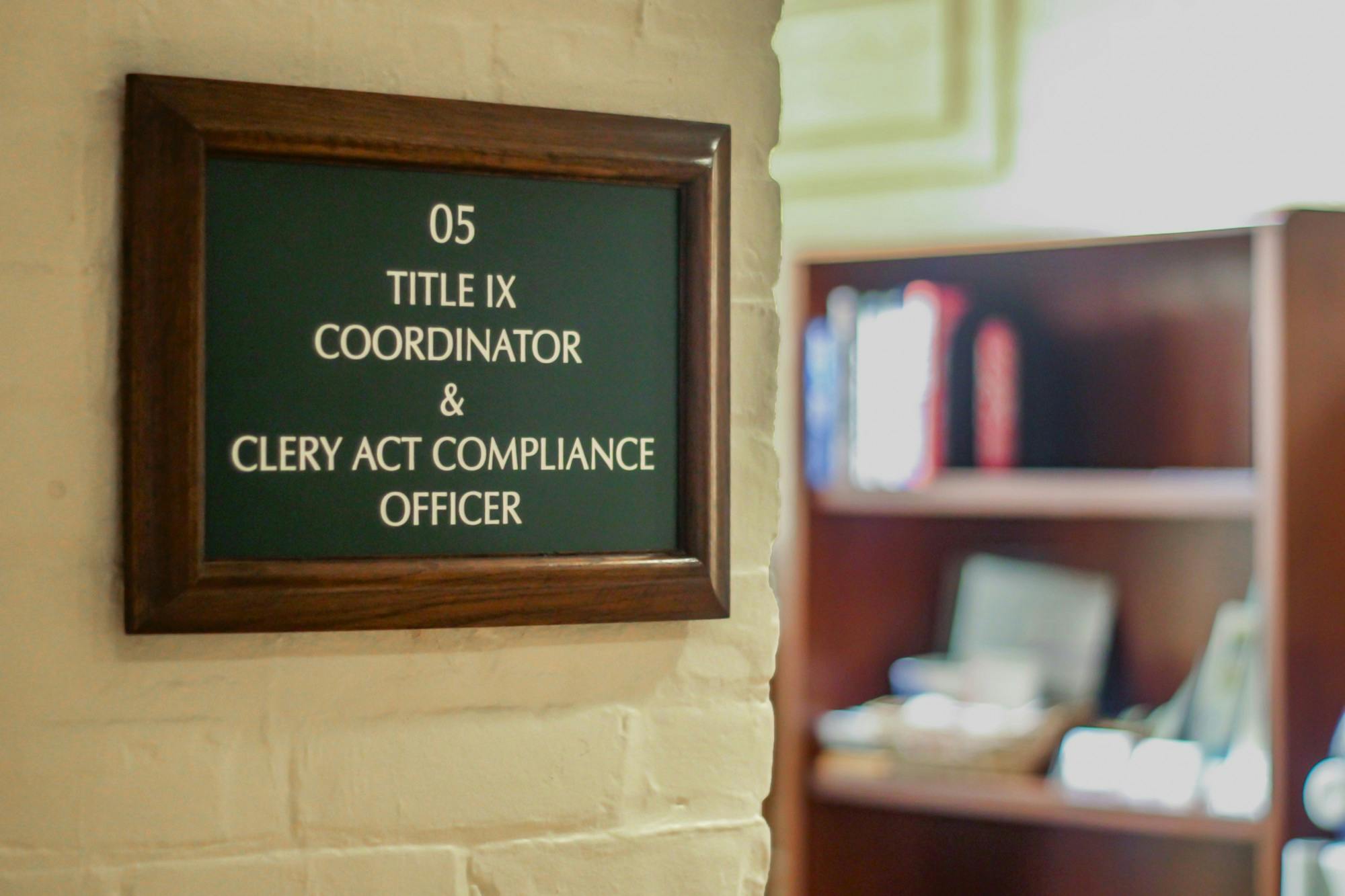In November, the College published the results of the 2021 Dartmouth Sexual Misconduct Survey. The survey, conducted by the Title IX Office, was completed by students in April 2021, and aimed to both measure the prevalence of sexual violence and misconduct on campus and gauge campus awareness of resources and processes.
In all, 43% of 6,913 undergraduate and graduate students participated in the survey. For the first time, faculty and staff also participated in the survey, which saw a response rate of 46% out of 4,527 faculty and staff members.
Title IX coordinator Kristi Clemens said that since her time starting in this role in 2018, there has been a very different approach to faculty and staff and the office decided to include them in the 2021 survey.
“As a college, we are focused on our students — that is the reason we are all here. But I think we can’t turn a blind eye to the entirety of our community,” Clemens said. “Since our office does not serve only students, it’s important to get a baseline understanding of what people are experiencing.”
The College last commissioned a similar survey in 2017. According to the 2021 executive summary of results, in 2021, 10.8% of all Dartmouth students reported experiencing unwanted or attempted unwanted sexual contact since entering Dartmouth, which is down from 15.8% in 2017. The percent experiencing nonconsensual penetration is also down to 5.9% from 6.8%. Likewise, rates of overall sexual harassment are also down.
In general, Clemens said she thinks the improvements are “very important to see,” but noted that the COVID-19 pandemic and the decreased social interaction during that time could have contributed to the decreases in sexual misconduct and abuse.
“While I think the lower prevalence of some reported incidents of harm in our community is legitimate, I think we’ll need to get through the next cycle of having a more normal time to see if we really are making some efforts,” Clemens said.
According to the executive summary of faculty and staff results, just 1.2% of employees reported unwanted or attempted unwanted sexual contact since coming to Dartmouth, though 22% reported experiencing verbal harrassment since working here.
However, the results show disparities along gender lines. For instance, the prevalence rate of unwanted sexual contact since entering Dartmouth is still much higher for female students, at 16.2%, and students identifying as transgender, genderqueer or gender non-conforming, questioning or not listed at 22.5%. 4.5% of the male students surveyed report experiencing unwanted sexual contact. Likewise, female students experience higher rates of harassment than their male peers, and transgender, genderqueer and non-conforming students experience higher rates than both their male and female peers.
Results from the 2021 survey show that more students are aware of campus resources related to sexual misconduct than four years ago. According to the executive summary, in 2021, 73% of students agreed they know where to go to get help relating to sexual assault and misconduct on campus, up from 61% four years prior. Additionally, the proportion of students who are “very or extremely aware” of the Title IX office more than doubled from 25% to 57%.
Clemens said she credits the Sexual Violence Prevention Project for improvements in the campus climate.
“Any progress that we’ve made could also be attributed to the work of SVPP, the sort of intense and intentional work that they’ve been doing to advance prevention on campus,” she said.
SVPP director Amanda Childress wrote in an emailed statement that the mission of the project is “to reduce sexual violence by replacing harmful behaviors with positive behaviors.” She also wrote that she believed the project did have an impact on the survey results and that at this time no steps are being taken to alter its curriculum.
“At this point, we don’t anticipate any changes to the curriculum as a result of the SMS climate survey. Experts in sexual violence prevention research out of the Prevention Innovation Research Center are currently conducting an extensive five-year longitudinal evaluation specifically for the SVPP to better evaluate its impact,” Childress wrote.
The Dartmouth reported in November that understaffing threatens SVPP’s programming for the Class of 2023.
In response to the survey, the Title IX Office published an action plan that aims to further reduce the prevalence of sexual violence across campus and increase awareness regarding campus resources and reporting processes.
Some of the specifics of the action plan include hiring an assistant director to design a sexual misconduct prevention and reporting curriculum, creating more training opportunities for graduate students and college employees and introducing cultural and racial sensitivity training among certain staff members.
The College, according to Clemens, had originally planned to do another similar campus climate survey in 2023 to try and resume a two-year cycle disrupted in 2019 by transitions in the Title IX Office. However, Clemens added that under new state legislation that requires New Hampshire universities to develop a task force and survey on campus sexual misconduct, the College will conduct a campus sexual misconduct climate survey this year with a specific set of questions being drafted by the state government.
According to Clemens, the College expects to send out the survey by the end of March. After that, the survey will be conducted every other year, taking place again in 2024.




